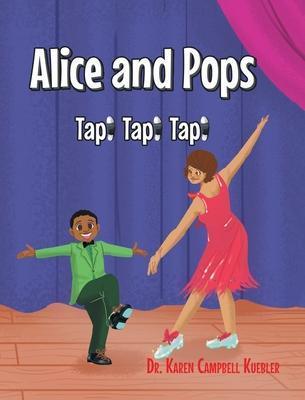Inspired by the HERstory of Alice Whitman (1900-1969) and her son Pops Whitman (1916-1950), this rhythmic story will have readers tapping their feet, learning some dance history, and meeting new friends. Alice danced in her family company so she was able to do tap dance solos and hoofer style tapping. In all the other companies, women could only perform with a chorus line and did not do the hoofer style. Alice passed her tapping talent to her son Pops Whitman who started performing solos at age four and was the first tap dancer to include acrobatics in addition to the rhythms of the feet. Other than a few outside performances, Alice remained with the family company for thirty years. Pops left the family company at seventeen with Louis Williams. Pops and Louis toured America and Europe for over twenty years. Both Alice and Pops need their dancing stories to be told so other children are inspired to move to the beat and share their unique dancing stories.

Inspired by the HERstory of Alice Whitman (1900-1969) and her son Pops Whitman (1916-1950), this rhythmic story will have readers tapping their feet, learning some dance history, and meeting new friends. Alice danced in her family company so she was able to do tap dance solos and hoofer style tapping. In all the other companies, women could only perform with a chorus line and did not do the hoofer style. Alice passed her tapping talent to her son Pops Whitman who started performing solos at age four and was the first tap dancer to include acrobatics in addition to the rhythms of the feet. Other than a few outside performances, Alice remained with the family company for thirty years. Pops left the family company at seventeen with Louis Williams. Pops and Louis toured America and Europe for over twenty years. Both Alice and Pops need their dancing stories to be told so other children are inspired to move to the beat and share their unique dancing stories.